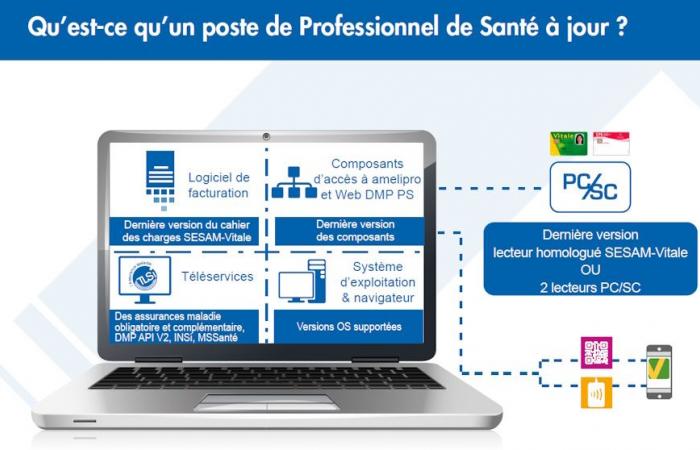The 1is amendment to the agreement governing relations between Health Insurance and hearing care professionals provides that the passage of the Vitale card becomes compulsory to practice third-party payment and the exemption of advance fees. Hearing care professionals who have not yet switched to Sesam-Vitale transmissions should do so as soon as possible.
When ?
The amendment signed by the SDA, Synea and Synam, Health Insurance and Unocam, provides for entry into force on 1is January 2025. It is not yet official, but even if it were at the end of December, the date of application would be maintained… Unless a new discussion between the conventional partners is considered, which is very unlikely. Hearing care professionals who do not use the Sesam-Vitale standard have less than 2 months left to prepare. It’s very little!
For what ?
This amendment to the Convention is part of the hunt for hearing aid fraud carried out by Health Insurance with the support of professional organizations. Indeed, checks by the AMO showed that degraded transmissions, but also CMU and C2S files were over-represented in cases of fraud. The obligation to use the Vitale card, physical or electronic, for all invoicing should counter malpractice of this type (fraudulent use of invoicing data, in particular).
Who ?
According to our information, several hundred hearing care professionals, around 500, currently use exclusively the Iris B2 degraded transmission mode. For these professionals, it is more than urgent to equip themselves to be able to teletransmit to the Sesam-Vitale standard otherwise they will not be able to waive advance fees from 1is January. However, the procedures take time, for several reasons.
Comment ?
Firstly, the hearing care professionals concerned must contact their professional software publisher. Some have set up assistance with procedures to support healthcare professionals, including ordering their card. You will need to choose the equipment for passing Vitale cards, physical or via the app. Finally, audios will have to train themselves and/or their assistant because the Sesam-Vitale standard has its own jargon and involves getting used to the corresponding processes in the business software. There is therefore a learning and getting to grips time to take into account. Each of these steps involves delays – 1 month to receive the CPS card, in the best case. It is therefore recommended to start the process today.
And the patients?
Even for the majority of audiologists who already practice Sesam-Vitale transmissions, educational work with patients will be necessary. It will no longer be possible to do without the Vitale card, even occasionally, to access the advance fee waiver. This also concerns patients benefiting from CMU and/or C2S, even though in pharmacies the presentation of the card is not essential. A difference in situation which risks surprising them. The brands are already working on supports to help hearing care professionals and assistants respond to them. But independents will be just as concerned by these questions, or even misunderstandings, from patients.
Visual credit: GIE Sesam-Vitale






